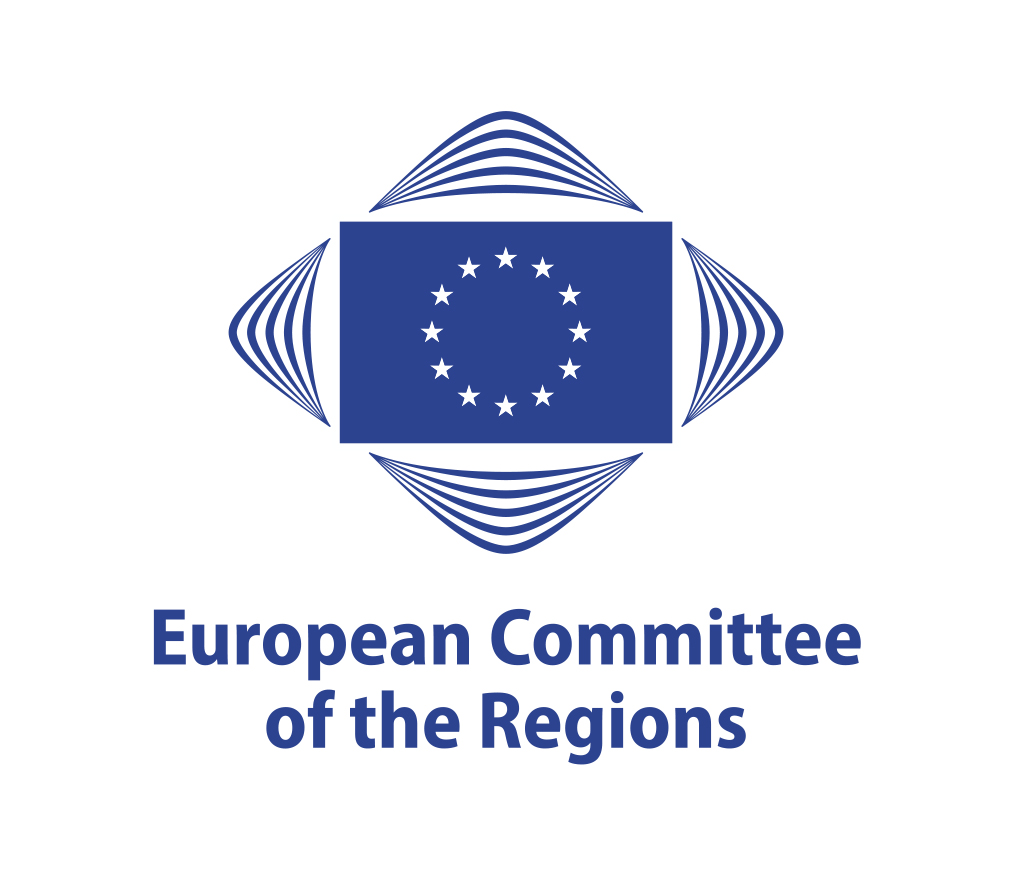 Homepage CASE
Homepage CASE
Selected values

Developing a handbook on good practice in countering disinformation at local and regional level
-
Date:
15 Dec 2021 - 15 Jun 2022
-
Project duration:
15.12.2021 - 15.06.2022
-

Agnieszka Kulesa
Specialist in Social Sciences
Agnieszka Kulesa has been working at CASE since 2018. She specialises in the labour market, international labour migration, and migration policies within and outside the European Union.
Projects from this author:
- Capacity building for local and regional authorities in the light of the Ukraine Facility (Pillar III)
-
FUTURE FOR ALL – Advancing Cross-Generational Collaboration through Futures Literacy (FFA)
The primary objective of the “FUTURE FOR ALL - Advancing Cross-Generational Collaboration through Futures Literacy (FFA)” project is to encourage active participation of citizens in the life of their respective neighborhoods with a specific emphasis on promoting intergenerational cooperation. The project addressed to elderly and youth residing in youth sociotheraphy centres (and the educators of the respective groups) identifies specific objectives: Face social problems between generations and contributing to lifelong learning Fight stereotypes, improve mutual knowledge and understanding Transfer of knowledge between Norway and Poland, and exchange of experience in applying futures thinking tools in working with intergenerational group Equip seniors and (socially maladjusted) youth with Futures Literacy tools to help them achieve developmental goals for their life stage Raise awareness of the local environment and a sense of responsibility, and agency to improve it To achieve these goals, the project intend to leverage the innovative approach of Futures Literacy to empower and engage the two crucial demographics. Futures Literacy is a concept and methodology developed by the UNESCO that presents an altered perspective on how to perceive and engage with the future (UNESCO, n.a.). It is a cognitive skill and a framework designed to enhance one’s capacity to comprehend, navigate and shape the complex and uncertain nature of the future. Apart from Futures Literacy approach the project will use additional activities designed to address key issues and encourage intergenerational collaboration such as: anti-stereotype and integrational workshops to provide a platform for both generations to openly discuss and challenge stereotypes that may hinder effective collaboration and understanding Urban Game Design: The elderly will take the lead in designing an urban game for the youth, offering them an opportunity to explore and connect with the city they know from a different perspective Planting activity: A shared activity of planting flowers will be organised to foster active citizenship and environmental awareness among the groups. Intergenerational trip: Organisation of a day trip to a museum or a concert chosen by either the elderly or the youth hold immense potential for interesting experiences among the participants The activities planned in the project support intergenerational cooperation, leverage the strengths of different age groups, creating a synergy that is particularly relevant in the context of modern world. By promoting understanding, collaboration, and mutual support among generations we can collectively adapt to and address the complex challenges of today’s rapidly changing world. The project will also strengthen bilateral cooperation between Poland and Norway in the area of building social capital in local communities. It will be achieved by a Polish and a Norwegian organisation that will combine their experiences in supporting active citizenship in their various environments and by using their different areas of expertise. Funding: Fund for Bilateral Relations, hereinafter referred to as the “FBR” the European Economic Area Financial Mechanism 2014-2021 and Norwegian Financial Mechanism 2014-2021 Project Leader: CASE Project Partner: Fremtenkt
-
Study on affordable sustainable housing in the EU
The study will contribute to the reflection on possible policy solutions to affordable sustainable housing in the EU, by examining a number of initiatives taken at (sub)national level innovating in the field of housing and determining how these could be relevant in a European context. The current challenges surrounding the availability of affordable and … Continued
-

Katarzyna Sidło
Dr Katarzyna W. Sidło specializes in the political economy, geo-economics and socioeconomic development of the European Union’s Southern Neighbourhood as well as EU-Mediterranean relations. She has a proven track record working on studies, evaluations and impact assessments commissioned by various international donors such as the European Parliament, the European Commission and its various departments and agencies, … <a href="https://case.dev10.pro/project/developing-a-handbook-on-good-practice-in-countering-disinformation-at-local-and-regional-level/">Continued</a>
Projects from this author:
-
How the EU should prepare for the enlargement in terms of governance, policies and investments: options and choices made from a territorial perspective
In its 2023 enlargement package, the European Commission recommended that the Council open accession negotiations with Ukraine and Moldova. Moreover, it recommended that the Council grant Georgia the status of candidate country and open accession negotiations with Bosnia and Herzegovina, once the necessary degree of compliance with the membership criteria has been achieved. The … Continued
-
Tourism and Rural Development
The study commissioned to CASE by the Committee of the Regions and entitled “Tourism and Rural Development” is to provide a brief analysis of the main barriers and enablers to tourism as part of rural development in the European Union from the perspective of subnational governments. The study also will pay attention to identify supporting … Continued
-
Prospects of reinvigorating the Middle East Peace Process: a possible joint EU-US undertaking
This study aimed to assess the prospects of, and underlying conditions for, a joint diplomatic EU-US initiative to support the Middle East Peace Process, and ultimately a viable, sustainable and peaceful solution to the Israeli-Palestinian dispute, in line with applicable international law. The paper prepared by CASE and IMED experts evaluates the possibility of … Continued
-
How the EU should prepare for the enlargement in terms of governance, policies and investments: options and choices made from a territorial perspective
-

Oskar Chmiel
Oskar Chmiel holds a PhD in Social Sciences with a specialization in Political Science from the University of Wroclaw. He is particularly interested in the political and social aspects of international development cooperation, migration, and trade. Prior to joining CASE, Oskar gained experience working, among others, as an intern at the Polish Centre for African … <a href="https://case.dev10.pro/project/developing-a-handbook-on-good-practice-in-countering-disinformation-at-local-and-regional-level/">Continued</a>
Projects from this author:
- Capacity building for local and regional authorities in the light of the Ukraine Facility (Pillar III)
-
In search of mechanisms linking the pseudo-causal narratives and policy outcomes: the case of the Trade-Development-Migration nexus in the EU’s approach towards the countries of its Southern Neighbourhood
The project will examine what causal mechanisms link the pseudo-causal policy narratives and policy outcomes in the European Union’s trade-development-migration nexus (hereafter, T-D-M nexus), and how they do it. To address this question, the project will focus on the narratives about addressing the root causes of migration through trade and development cooperation, produced by … Continued
-
How to eradicate skills poverty among the most vulnerable?
In a context of changing labour market needs due to the green and digital transitions and the still gaping skill divides across society, the European Commission proposes a number of actions ‘to give a fresh impetus to lifelong learning’. This includes ‘Promoting increased, and more effective and inclusive investment in training and upskilling to harness … Continued
-

Marek Peda
Marek Peda is responsible for managing research projects funded by European, national, multilateral, and private donors. Mr. Peda has over 10 years of professional experience as a project manager and in conducting research. He gained international exposure while working on projects for international organizations and academic institutions in Spain and the United States. Mr. Peda … <a href="https://case.dev10.pro/project/developing-a-handbook-on-good-practice-in-countering-disinformation-at-local-and-regional-level/">Continued</a>
Projects from this author:
-
How the EU should prepare for the enlargement in terms of governance, policies and investments: options and choices made from a territorial perspective
In its 2023 enlargement package, the European Commission recommended that the Council open accession negotiations with Ukraine and Moldova. Moreover, it recommended that the Council grant Georgia the status of candidate country and open accession negotiations with Bosnia and Herzegovina, once the necessary degree of compliance with the membership criteria has been achieved. The … Continued
-
The means for cities and regions to support the energy transition in the Mediterranean
Since February 2022, the war in Ukraine has significantly reshaped the geopolitical landscape and exacerbated the multiple challenges and tensions in the Mediterranean region. The conflict has highlighted the vulnerability of traditional energy supply routes, and the need to reassess future energy development strategies in the Mediterranean region. Like the COVID-19 pandemic, geopolitical uncertainties … Continued
-
Natural disasters: anticipatory governance and disaster risk management from a local and regional perspective
The COVID-19 pandemic, the war right on our doorstep, the devastating floods in Slovenia, wildfires in Greece and Cyprus, relentless heatwaves in Italy and Spain, to name just a few: all of them highlight the need to better prepare for, cope with and recover from disasters and crises. It is one of the most important challenges for … Continued
-
How the EU should prepare for the enlargement in terms of governance, policies and investments: options and choices made from a territorial perspective
Project description:
Having in mind the established frameworks at European level, it is necessary to ensure that the available tools are utilised at all levels and by all relevant actors that could contribute to the joint aim of empowering citizens in their resilience to disinformation. While it is beneficial to adopt broad strategies, these should be adjusted to the specific regional and local context.
There is a lack of recognition that local and regional authorities, being closest to the citizens, can be a valuable asset in fighting disinformation. It is also necessary to acknowledge their role in developing specific tailor-made activities and messaging which can support the engagement in the fight against disinformation at national and European level. Local and regional authorities should be assisted in building awareness-raising on disinformation threats in their constituencies, as well as in developing the capacity to react promptly to the threats.
The project aims at providing an overview of the existing EU framework and of the available tools to help fight against disinformation, taking into account the specific challenges encountered by local and regional authorities. Drawing from the existing framework and best practice, the project aims also to provide local and regional actors with concrete recommendations on effective measures to counter disinformation, with a particular focus on media literacy and civic education. It will contain proposals to support the CoR’s foresight in this area..
Client: The Committee of the Regions
Leader: Millieu
Partner: CASE
Related projects
Thanks for joining us!
You're now part of a community that values [your newsletter's focus]. Get ready to stay informed, inspired, and engaged with our carefully curated content.
